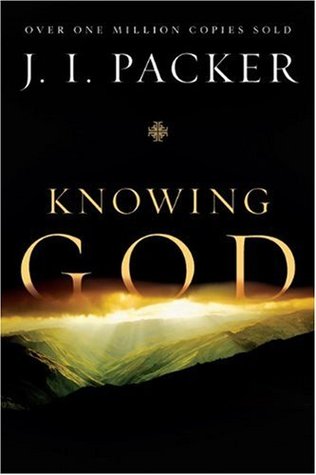More on this book
Community
Kindle Notes & Highlights
Note, second, what Paul implies about the effectiveness of our redemption.
The New Testament view is that the death of Christ has actually saved “us all”—all, that is to say, whom God foreknew, and has called and justified, and will in due course glorify. For our faith, which from the human point of view is the means of salvation, is from God’s point of view part of salvation, and is as directly and completely God’s gift to us as is the pardon and peace of which faith lays hold.
Now we see why the Greek of this verse says literally (and so the KJV renders it), how shall he not with him also give us all things? It is simply impossible for him not to do this, for Christ and “all things” go together as ingredients in the single gift of eternal life and glory, and the giving of Christ for us, to remove the “sin barrier” by substitutionary atonement, has effectively opened the door to our being given all the rest.
Note, third, what Paul implies about the consequences of our redemption. God, he says, will with Christ give us “all things.”
Note, now, how God deals with this question of dividing allegiance between himself and “other gods.” He puts it to Israel as an issue not of theology but of loyalty; a matter not of the mind simply, but of the heart.
The first commandment, in its positive form, is put to you by Christ himself: “‘Love the Lord your God with all your heart and with all your soul and with all your mind.’ This is the first and greatest commandment” (Mt 22:37-38). The claim rests on the right of both creation and redemption, and it cannot be evaded.
You are called to go through this world as a pilgrim, a mere temporary resident, traveling light, and willing, as Christ directs, to do what the rich young ruler refused to do: give up material wealth and the security it provides and live in a way that involves you in poverty and loss of possessions.
So, what Christ means is that you must accept for yourself the position of such a person, in the sense that you renounce all future expectations from society and learn to take it as a matter of course if the people around you give you the cold shoulder and view you with contempt and disgust, as an alien sort of being.
Again: you are called to be a meek person, not always standing up for your rights, nor concerned to get your own back, nor troubled in your heart by ill treatment and personal slights (though, if you are normally sensitive, these things are bound to hurt you at the top level of consciousness); but you are simply to commit your cause to God and leave it to him to vindicate you if and when he sees fit.
One reason, it seems, is that in our heart of hearts we are afraid of the consequences of going the whole way into the Christian life.
The name of the game we are playing is unbelief, and Paul’s “he will give us all things” stands as an everlasting rebuke to us.
The thought expressed by Paul’s third question is that no accusation can ever disinherit us. He conveys this thought by pointing to the adequacy of God as our sovereign champion and to the decisiveness of his justifying verdict upon us.
There are two sorts of sick consciences, those that are not aware enough of sin and those that are not aware enough of pardon,
First, Paul brings in a reminder of God’s grace in election. “Who shall bring any charge against God’s elect?”
Second, Paul brings in a reminder of God’s sovereignty in judgment. “It is God who justifies; who is to condemn?”
Third, Paul brings in a reminder of Christ’s effectiveness in mediation. It is best, with the RSV, to read the reference to Christ in Romans 8:34 as a question. “Who is to condemn? Is it Christ Jesus, who died, yes, who was raised from the dead, who is at the right hand of God, who indeed intercedes for us?”
Fourth: “Who shall separate us from the love of Christ?” The climactic thought to which Paul rises in his fourth question is that no separation from Christ’s love can ever befall us.
First, God is adequate as our keeper. “Nothing. . . can separate us from the love of God,” because the love of God holds us fast.
Then, second, God is adequate as our end.
Happy the person who can say these things and mean them!


